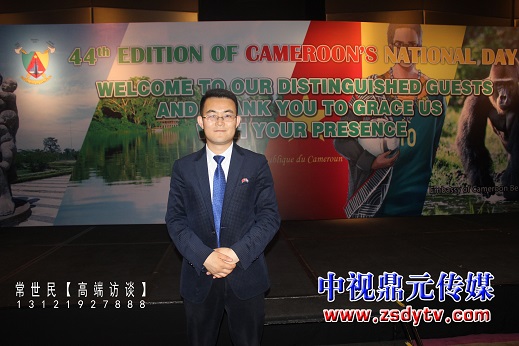
The Republic of Cameroon
Cameroon, officially the Republic of Cameroon, is a country in Central Africa. It is bordered by Nigeria to the west; Chad to the northeast; the Central African Republic to the east; and Equatorial Guinea, Gabon, and the Republic of the Congo to the south. Cameroon's coastline lies on the Bight of Biafra, part of the Gulf of Guinea and the Atlantic Ocean.

French and English are the official languages of Cameroon. The country is often referred to as "Africa in miniature" for its geological and cultural diversity. Natural features include beaches, deserts, mountains, rainforests, and savannas. The highest point at almost 4,100 metres (13,500 ft) is Mount Cameroon in the Southwest Region of the country, and the largest cities in population-terms are Douala on the Wouri river, its economical capital and main seaport, Yaoundé, its political capital, and Garoua. After independence, the newly united nation joined the Commonwealth of Nations, although the vast majority of its territories had previously been a German colony and, after World War I, a French mandate. The country is well known for its native styles of music, particularly makossa and bikutsi, and for its successful national football team.

Cameroon enjoys relatively high political and social stability. This has permitted the development of agriculture, roads, railways, and large petroleum and timber industries. Nevertheless, large numbers of Cameroonians live in poverty as subsistence farmers. Power lies firmly in the hands of the authoritarian president since 1982, Paul Biya, and his Cameroon People's Democratic Movement party. The English-speaking territories of Cameroon have grown increasingly alienated from the government. Politicians and civil society in English-speaking regions have called for greater decentralization and even complete separation or independence (for example: the Southern Cameroons National Council) from the former French-governed territories.